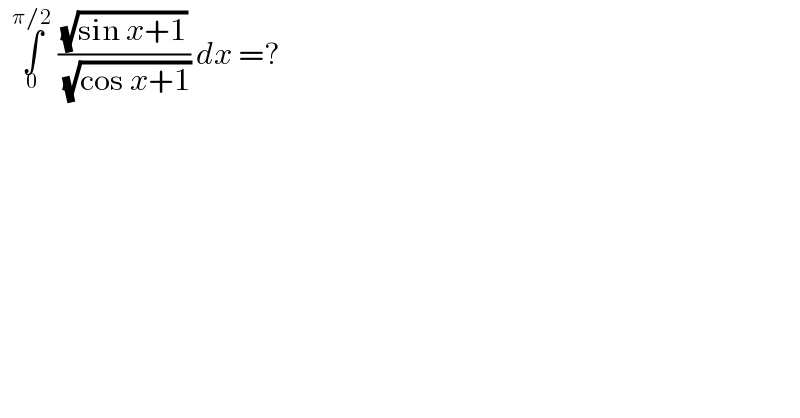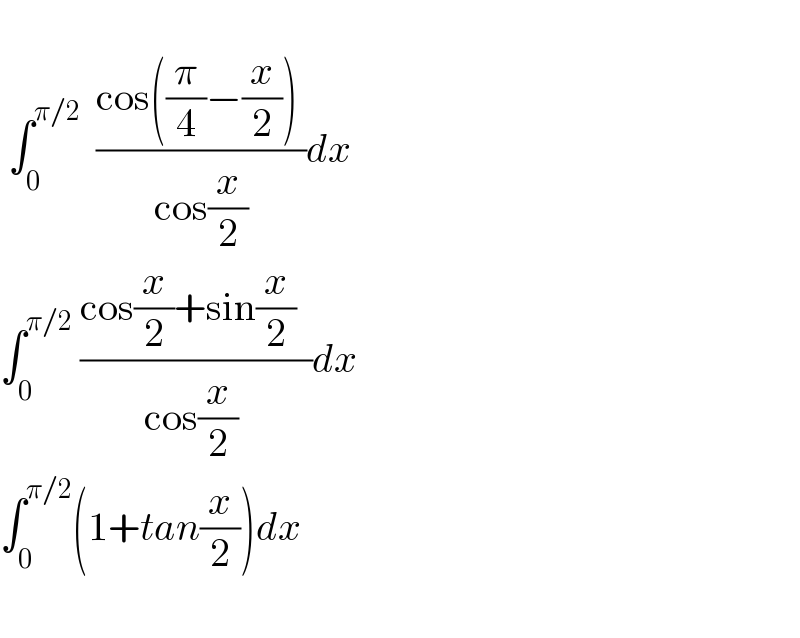
Question and Answers Forum
Question Number 183109 by cortano1 last updated on 20/Dec/22

Answered by universe last updated on 20/Dec/22

Commented by MJS_new last updated on 21/Dec/22

Answered by MJS_new last updated on 21/Dec/22
![∫_0 ^(π/2) ((√(1+sin x))/( (√(1+cos x))))dx= [t=tan (x/2) → dx=((2dt)/(t^2 +1))] =(√2)∫_0 ^1 ((t+1)/(t^2 +1))dt= =(√2)[(1/2)ln (t^2 +1) +arctan t]_0 ^1 = =((π(√2))/4)+((√2)/2)ln 2](Q183147.png)
Commented by cortano1 last updated on 21/Dec/22

